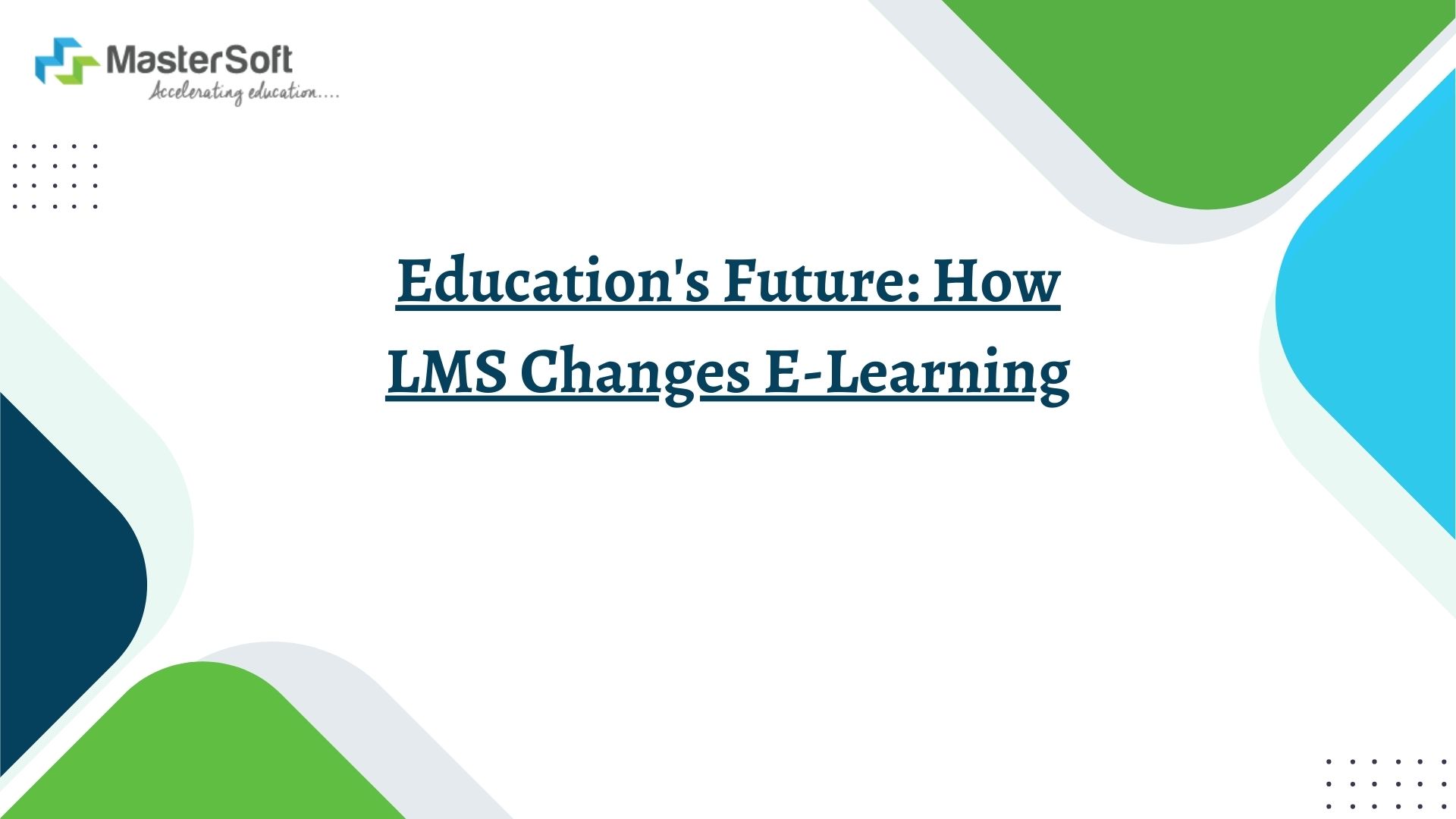In recent years, the landscape of education has undergone a significant transformation, and one of the key driving forces behind this change is the advent of Learning Management Systems (LMS). These digital platforms have revolutionized the way we approach e-learning, making it more accessible, interactive, and efficient. In this blog, we will explore the impact of LMS on education’s future, highlighting the benefits and potential challenges of this technological revolution.
1. Accessibility and Inclusivity:
One of the most significant advantages of LMS is the enhanced accessibility it offers. Traditional education systems are often constrained by physical locations, scheduling, and the need for students to be present in a specific place. LMS breaks down these barriers by allowing students to access learning materials from anywhere, at any time. This flexibility accommodates students with diverse needs, such as working adults, those with disabilities, or individuals in remote areas with limited educational resources. As a result, education becomes more inclusive, ensuring that learners from all walks of life can access high-quality content.
2. Personalized Learning:
LMS platforms are designed to cater to individual learning needs. They use data analytics and artificial intelligence to track student’s progress, understand their strengths and weaknesses, and suggest personalized learning paths. This approach transforms education into a tailored experience, where students can learn at their own pace and in a way that best suits their learning style. With the ability to adjust the difficulty level of content and offer additional resources or support as needed, Learning Management Systems empowers students to take control of their education.
3. Rich Multimedia Content:
Gone are the days of static textbooks and monotonous lectures. LMS incorporates a wide array of multimedia content, including videos, interactive simulations, and gamified exercises. This dynamic approach to learning makes the educational experience engaging and enjoyable. It caters to the digital native generation, which is accustomed to information presented in multimedia formats. As a result, students are more likely to remain focused and motivated, leading to better retention and comprehension of the material.
4. Collaboration and Communication:
LMS platforms are equipped with communication tools that facilitate collaboration among students and teachers. Discussion forums, chat rooms, and video conferencing features enable students to interact with their peers and instructors, even in a remote learning environment. This promotes active participation, the exchange of ideas, and the development of important interpersonal skills. Students can work on group projects, share knowledge, and seek help when needed, fostering a sense of community and support.
5. Streamlined Assessment and Feedback:
Assessment and feedback mechanisms are critical components of the learning process. E-learning simplifies the process of creating, administering, and grading assessments. It provides instant feedback to students, helping them understand their mistakes and areas that need improvement. Additionally, teachers can use data analytics to identify trends and adjust their teaching methods accordingly. The result is a more efficient and data-driven approach to education, which can lead to improved student outcomes.
6. Cost-Efficiency:
Implementing and maintaining LMS systems can be more cost-effective for educational institutions in the long run. While the initial setup and training may require an investment, the reduction in physical infrastructure and materials can result in significant savings over time. Furthermore, LMS can be easily scaled to accommodate a growing number of students without the need for additional physical resources. This cost-efficiency makes quality education more accessible and sustainable.
7. The Challenge of Digital Equity:
While LMS has the potential to transform education positively, it also presents challenges. One of the most significant concerns is the issue of digital equity. Not all students have equal access to the necessary devices and internet connectivity, which can create disparities in their ability to engage with online learning. Ensuring that all students have access to the technology and resources they need is a pressing challenge for educators and policymakers.
8. Data Privacy and Security:
LMS systems collect and store vast amounts of data about students, including their performance, preferences, and behaviors. Ensuring the privacy and security of this data is crucial to protect students from potential breaches or misuse. Institutions must implement robust data protection measures and adhere to legal and ethical standards to safeguard the sensitive information they collect.
In conclusion, the advent of Learning Management Systems is reshaping the future of education. The benefits of accessibility, personalized learning, rich multimedia content, collaboration, streamlined assessment, and cost-efficiency are clear. However, addressing the challenges of digital equity and data privacy is essential to ensure that the potential of LMS is harnessed responsibly and inclusively. As technology continues to advance, the role of LMS in education is likely to expand, offering new opportunities and capabilities for learners and educators alike. Embracing this evolution can help us create a more flexible, effective, and equitable educational system for the future.




